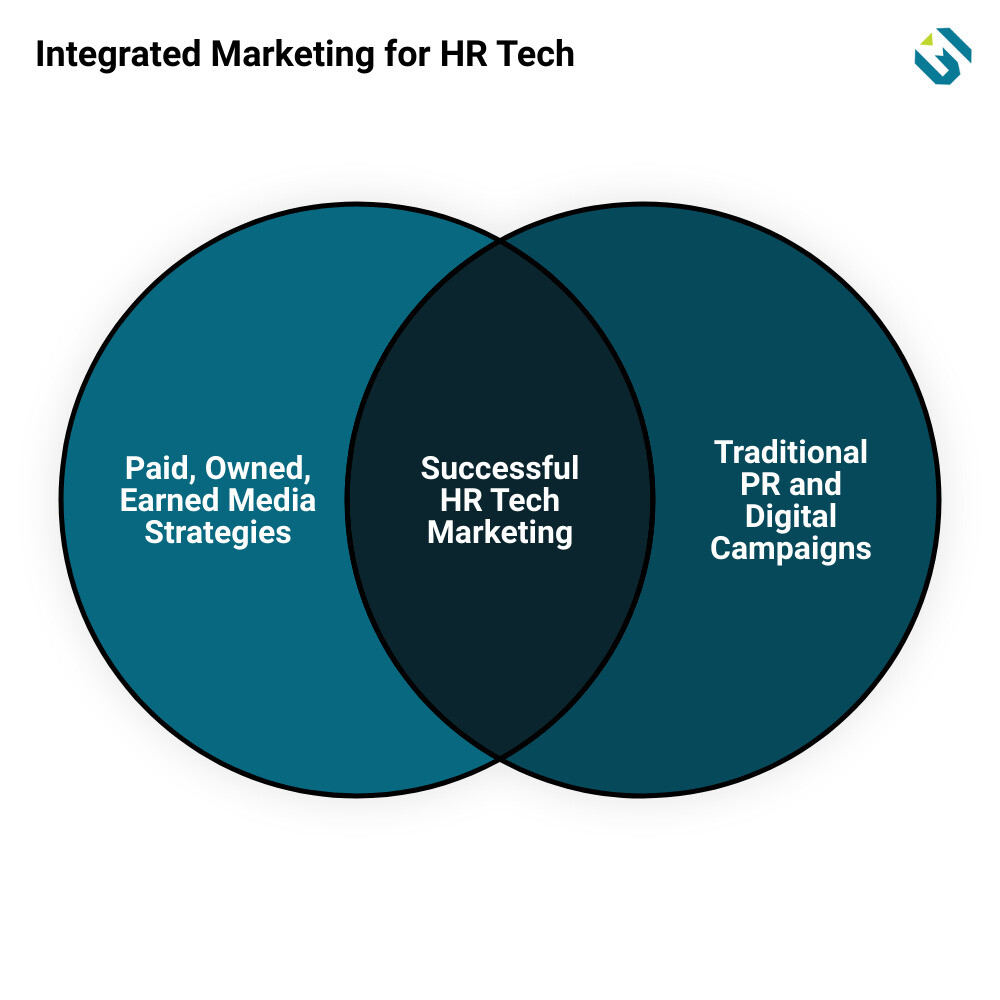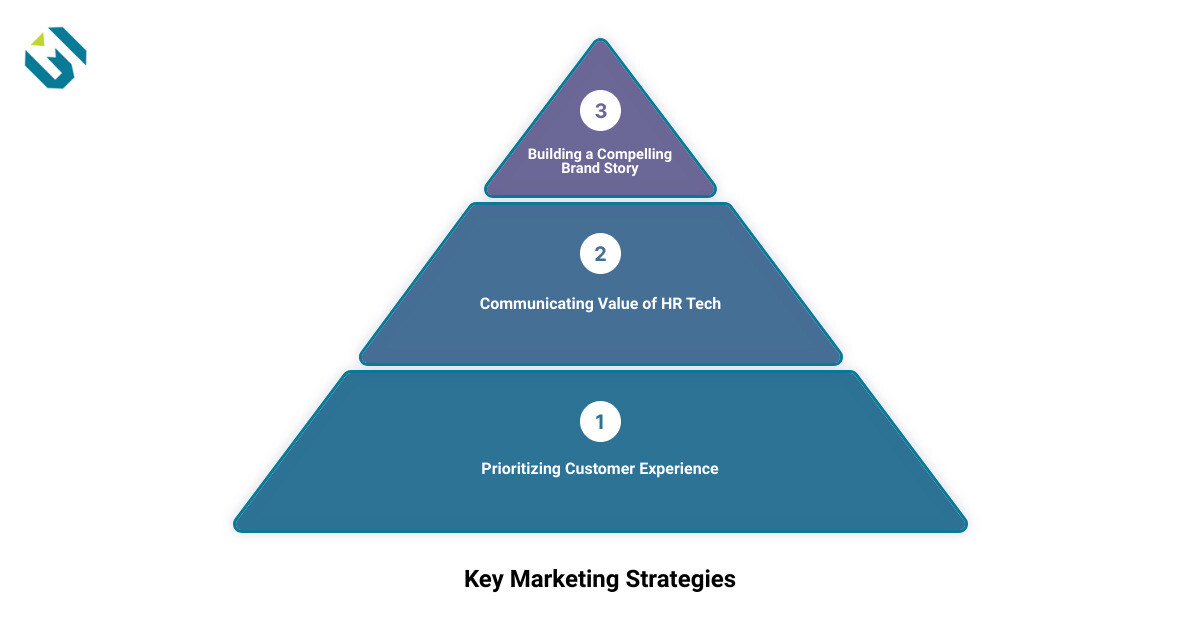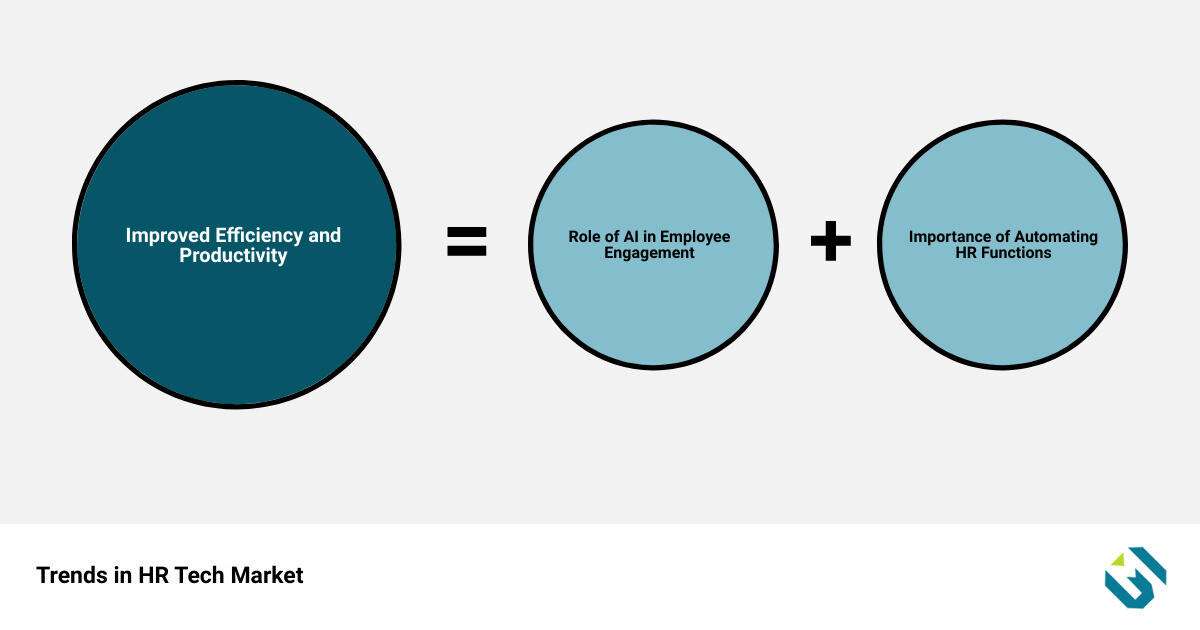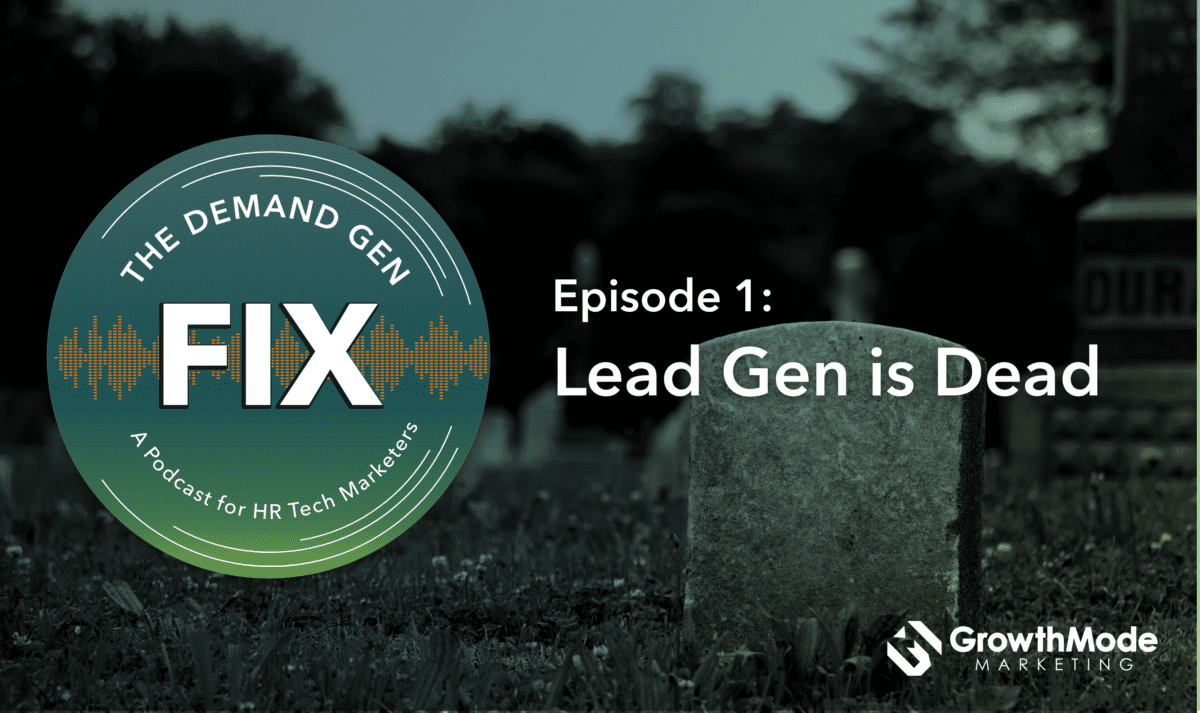This article was created using AI. It has not been edited. We are testing the technology.
Introduction: The Rising Demand for HR Tech and the Role of Marketing
Riding the digital wave, the HR technology market is experiencing unprecedented growth. As businesses across the globe continue to digitize their HR operations, the need for efficient, effective solutions for managing human resources is skyrocketing. This rising demand for HR tech, from employee payroll and compensation tools to talent acquisition and management software, presents a golden opportunity for HR tech companies. However, seizing this opportunity is no small feat. With the market’s rapid expansion comes increased competition, making it crucial for HR tech companies to cut through the noise and reach their ideal customer profile audience. This is where the power of marketing comes into play.
Marketing for HR tech plays a pivotal role in this digital era. It helps HR tech companies increase their digital footprint, build brand awareness, credibility, and trust, and ultimately drive revenue growth. But it’s not just about getting your product or service in front of potential customers; it’s about demonstrating how your technology can empower people, not just processes. It’s about prioritizing customer experience, communicating the value your solution brings to HR departments, and creating a compelling brand story that fosters long-term customer relationships.
In the following sections, we’ll delve deeper into the importance of integrated marketing for HR tech, the unique selling proposition of GrowthMode Marketing, key marketing strategies for HR tech companies, and more. So let’s dive in and unleash the power of marketing in the HR tech landscape.

The Importance of Integrated Marketing for HR Tech
Navigating the busy digital highway of the HR tech marketplace requires more than just a standard marketing approach. Integrated marketing, a methodology that seamlessly unites all forms of marketing communication, is the torchlight in the dark, guiding HR tech companies towards their ideal customer profile audience.
The Role of Paid, Owned, and Earned Media Strategies
In the HR tech sector, the role of paid, owned, and earned media strategies cannot be understated. These three pillars form the cornerstone of an effective integrated marketing approach.
Paid media, such as PPC ads, provides immediate visibility and control, helping HR tech companies quickly gain traction in the marketplace. Owned media, such as a company’s website or blog, offers an ideal platform to showcase thought leadership and proprietary data insights. Earned media, like coverage in industry publications, builds credibility and trust, further enhancing the brand’s reputation.
By intelligently combining these strategies, HR tech companies can engage key audiences across a range of channels and media outlets, ensuring their message is heard loud and clear amidst the cacophony of the HR tech landscape.
The Power of Traditional PR and Digital Marketing Campaigns
While the digital age has brought about a shift towards online marketing, the power of traditional PR should not be overlooked. PR, when combined with digital marketing campaigns, can ramp up the visibility of HR tech companies among target audiences, reporters, and editors.
Data-driven PR, in particular, is a potent tool in the arsenal of HR tech companies. By leveraging proprietary data insights through interactive landing pages, SEO content, and PPC ads, HR tech companies can effectively shine the spotlight on their unique value proposition.
Tailoring Messages to Specific Audience Seggments to Increase Leads
One of the hallmarks of integrated marketing is the ability to distribute tailored messages to granular audience segments. This precision marketing approach is critical for HR tech companies looking to connect with the right prospects at the right time in the sales cycle.
Whether it’s a blog post addressing the pain points of HR managers or a social media campaign targeting C-suite executives, integrated marketing enables HR tech companies to deliver the right messages to the right audiences. This not only improves the brand’s thought leadership profile but also increases leads, driving high growth in a cluttered market.
To sum up, integrated marketing, with its blend of paid, owned, and earned media strategies, traditional PR, and digital marketing campaigns, is the key to unlocking success in the HR tech marketplace. By tailoring messages to specific audience segments, HR tech companies can cut through the noise and connect meaningfully with their ideal customers.
The Unique Selling Proposition of GrowthMode Marketing
Specializing in Demand Generation for HR Tech Companies
In an ocean of marketing agencies, GrowthMode Marketing stands as a beacon for B2B companies, especially in the tech sector. But what sets them apart is their unique selling proposition – demand generation. In the HR tech market, standing out is a Herculean task. But through demand generation, GrowthMode Marketing has not only carved a niche but has also helped HR tech companies scale new heights.
Their high-impact initiatives and strategic planning foster shorter sales cycles, higher close rates, and lower customer acquisition costs. By replacing traditional lead generation methods with demand generation strategies, GrowthMode Marketing ensures better quality leads and bigger growth for HR tech organizations.
Bridging the Gap Between Marketing and Sales for Meaningful Results
The secret sauce to GrowthMode’s approach is the synchronization of marketing and sales. They understand that these two departments are the engine of growth and should function in harmony, not in isolation. Demand generation acts as the growth catalyst here, creating a collaborative environment where marketing and sales work together towards a shared goal.
Through their podcast, The Demand Gen Fix, they offer invaluable insights into demand generation and B2B marketing strategies. They inspire HR tech marketers to perceive demand generation as a long-term strategy for achieving sustainable growth.
Building Brand Awareness, Credibility, and Trust in the HR Tech Market
In a cluttered market, building brand awareness, trust, and credibility is critical. GrowthMode Marketing excels in this by helping businesses break through the clutter and uncover interested prospects. Their success isn’t solely about getting prospects into the sales process; it’s more about prospects bringing the businesses into their buying process.
GrowthMode Marketing also maintains a steadfast commitment to their clients’ unique perspectives. They ensure that all marketing efforts align with the client’s ideal customer profile and overall business goals. This unwavering commitment and clear strategic direction have helped them successfully bridge the gap between marketing and sales, enabling HR tech companies to reach their growth targets.
In this rapidly-evolving HR tech market, GrowthMode Marketing is a guiding light, helping businesses navigate the cluttered waters and sail towards exponential growth. Their unique selling proposition, combined with their expertise in demand generation, ensures that HR tech companies not only stand out but also make a lasting impact in the market.
Key Marketing Strategies for HR Tech Companies
The competition in the HR tech market is intense and growing by the day. To stand out, HR tech companies need to craft and execute effective marketing strategies that resonate with their target audience and drives growth. Here, we delve into three crucial aspects of marketing for HR tech companies: prioritizing customer experience, communicating the value of the solution, and creating a compelling brand story.
Prioritizing Customer Experience in HR Tech Marketing
In an increasingly digital world, customer experience has become the new battleground. The key to winning in the HR tech industry lies not just in having an innovative product but in delivering a seamless and memorable customer experience. To achieve this, HR tech marketers must place their customers at the heart of their marketing strategy.
As per Leighanne Levensaler, Senior Vice President of Corporate Strategy at Workday Ventures, HR tech is shifting from managing workers to enabling employees. This transition necessitates a customer-centric approach, focusing on providing solutions that address the real-world challenges that HR professionals face.
By aligning your marketing efforts to the customer’s needs and expectations, you create a positive experience, which in turn fosters trust and loyalty. Remember, today’s customers don’t just compare your service with your competitors, but with the best customer experiences they’ve had.
Communicating the Value of HR Tech Solutions to HR Departments
The second crucial strategy is effectively communicating the value of your HR tech solution. This is where the rubber meets the road in tech marketing. Your potential clients need to understand how your product will help their HR departments become more efficient and make their jobs easier.
As an HR tech marketer, your role is not just to talk about the technical aspects of your product but to highlight the unique value your product brings to the table. Identify typical pain points and focus on how your product can help overcome these challenges.
Remember, the most important resource in your toolkit is within your customer’s pain points. Listen to the feedback from your current customers and shape your value proposition based on that. By effectively communicating the business value of your solution, you help clients recognize the value and see how they’ll be able to overcome their current challenges by implementing your product.
Creating a Compelling Brand Story for Long-Term Customer Relationships
Finally, the importance of telling a compelling brand story cannot be overstated. Today’s marketing is not just about the product you offer – it’s also about believing in the integrity behind the brand. Creating a compelling brand story that your clients will believe in and eventually become a part of is essential for building long-term customer relationships.
According to Jordan Wahl, Content Marketing Manager at G2, your brand strategy is your secret weapon. It’s purpose is to create long-term relationships with your customers so that you can ultimately build a brand that they trust.
To create a compelling brand story, focus on customer service, increasing brand awareness, customer loyalty, and commitment. By making your clients the center of your marketing strategy, you create more trust and make your brand more competitive, ultimately driving high growth in the HR tech market.
The Role of Inbound Marketing and Social Media in HR Tech Marketing
Success in the fiercely competitive HR tech sector is no longer just about having a top-tier product but also about mastering the game of inbound marketing and social media.
Implementing Successful Inbound Marketing Growth Strategies
Inbound marketing is the art of attracting potential customers by providing solutions to their problems and establishing your brand as a trusted industry resource. For HR tech companies, this involves creating and delivering valuable content that resonates with HR professionals’ needs and pain points.
Creating a successful inbound marketing strategy starts with a deep understanding of your customers. This includes conducting client discovery phone calls to identify the exact types of content to create. Next, you need to create an evergreen marketing funnel strategy based on these discovery calls, your knowledge and expertise, and other internal data. This strategy should include producing lead magnets to attract leads and writing evergreen lead nurturing email sequences to guide prospects through the sales funnel.
Utilizing Social Media Marketing for Greater Reach and Engagement
Social media is a powerful tool for HR tech companies to increase visibility and engage with their target audience. Platforms like LinkedIn are especially beneficial, given their professional nature and the opportunity they present to connect with HR professionals and key decision-makers.
A proactive social media strategy involves publishing fresh and relevant content regularly. This could be thought leadership pieces, industry news, or even insights from your own data. The key is to foster meaningful conversations about HR technology and workplace software, positioning your brand as a reliable resource in these discussions.
The Power of Partnership Marketing and Online Advertising Campaigns
Partnership marketing and online advertising campaigns are two more strategies that can significantly boost your HR tech company’s visibility and credibility. Partnership reports, for example, can warm up cold sales leads by gathering a group of industry leaders, including your sales prospects, to discuss an HR topic of your choice. This not only demonstrates your company’s thought leadership but also positions it as an industry authority.
Online advertising, on the other hand, can help attract new clients and increase brand visibility. This involves designing, launching, and managing pay-per-click (PPC) campaigns on platforms like Google and Facebook.
In this cluttered HR Tech market, the companies that stand out are the ones that can effectively leverage inbound marketing, social media, partnership marketing, and online advertising to increase their digital footprint, build brand awareness, credibility, and trust, and ultimately, drive high growth.
Addressing the Big Trends in the HR Tech Market
As the HR tech market continues to evolve, companies need to stay apprised of the latest trends and how they can leverage these to their advantage. The key trends shaping the HR tech landscape include Artificial Intelligence (AI) driven employee engagement, automation of HR functions, and the role of HR tech in supporting management efforts and creating a digital workplace.
The Role of AI in Improving Employee Engagement and Feedback
Embracing the wave of digitization, AI has become a game-changer in HR tech. It’s no longer just about managing workers, but rather enabling employees. AI-powered HR tech solutions can leverage chat functionality to collect and analyze employee feedback, helping to uncover their priorities and concerns. This not only enables companies to identify areas for improvement but also fosters a culture of open communication, leading to improved engagement and reduced turnover rates.
The Importance of Automating HR Functions for Efficiency and Productivity
Automation is another key trend in the HR tech market, driving both efficiency and productivity. With the global human resource technology market expected to reach $76.5 billion by 2031, there’s a pressing need for HR tech solutions that streamline HR processes. From automating employee payroll and compensation to talent acquisition and management, HR automation tools are becoming increasingly essential in today’s digital world. They not only save time and resources but also reduce the risk of errors, ultimately leading to more efficient HR operations.
How HR Tech Supports Management Efforts and Creates a Digital Workplace
In the era of remote work and geographically dispersed teams, HR tech plays a pivotal role in supporting management efforts and creating a digital workplace. The shift towards a “hyperlocal model” allows HR to outsource last-mile communication with each employee through their managers, catering to a geographically dispersed workforce. HR tech solutions that support remote work, foster employee engagement, and streamline HR processes are gaining significant traction. They empower employees to connect and collaborate, creating a digital workplace that’s not only productive but also fosters a sense of community and belonging.
In conclusion, staying ahead in the HR tech market means more than just offering innovative solutions. It’s about understanding these trends, adapting to the changing needs of businesses, and leveraging effective marketing strategies to reach your target audience, generate quality leads, and drive growth.
Conclusion: The Future of Marketing for HR Tech Companies
As we steer through the digital revolution, the future of marketing in the HR tech industry is charged with promise and potential. It goes beyond creating awareness and driving demand. It’s about resonating with the audience on a deeper level, demonstrating the value your solution brings, and ultimately, establishing lasting customer relationships.
The HR tech market is projected to reach $76.5 billion by 2031, showcasing a significant growth rate of 9.2% from 2022 to 2031. This rapid expansion, coupled with the shift towards digitalization, flexibility, and hybrid work, signifies the need for HR tech companies to stay ahead of the curve.
In today’s dynamic landscape, leveraging the power of demand generation is a key to staying competitive. It’s not just about attracting the right audience, but converting them into loyal customers, as demonstrated by companies like GrowthMode Marketing. A well-executed demand generation strategy, blending strategy, messaging, PR, content marketing, and digital marketing, can bridge the gap between marketing and sales, driving unparalleled growth.
In the future, demand generation in HR tech is set to become even more data-driven and integrated. This necessitates a deeper understanding of your target audience, the creation of valuable content, and efficient use of SEO, PPC, and social media to reach potential customers.
However, demand generation is not a one-time strategy. It requires constant nurturing and optimization to keep pace with the evolving market dynamics. HR tech companies will need to stay agile, adapt their strategies, and continue to invest in demand generation to sustain their long-term growth.
In the world of HR tech, the power of demand generation is not just a trend, but an essential strategy for success. With the right strategy, tools, and partner like GrowthMode Marketing, HR tech companies can navigate the complexities of the market, stand out from the competition, and accelerate their growth.
In essence, the future of marketing for HR tech companies is about embracing a people-centric approach, understanding the value of integrated marketing strategies, and leveraging the power of demand generation. It’s about building a brand that resonates with your audience, fosters trust, and drives high growth. A challenging yet exciting journey ahead surely awaits those ready to embrace this evolution.





